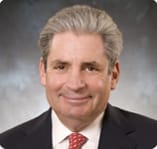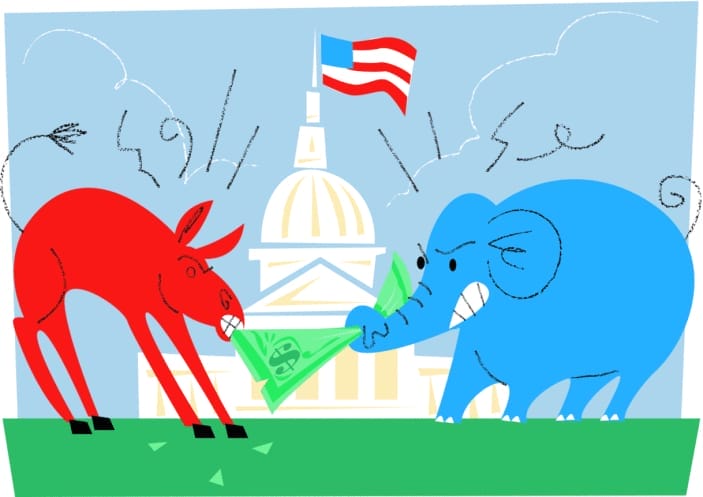Herbert Hoover once said: “Blessed are the young, because they will inherit the national debt.”
It’s appropriate, then, that the documentary film Overdraft—which tackles the daunting issue of America’s more than $15 trillion debt—will be screened at approximately 20 colleges and universities nationwide during the next few months. The cross-country tour launched at the University of Pennsylvania on October 8. The event featured both the film and a panel comprised of Wharton faculty members and Wharton alumnus Jay Fishman, W’74, WG’74.
“The stakes are high,” said Penn President Amy Gutmann, HOM’04, during an introduction of the evening. “Parties on each side of the debate will have to give up something they cherish in order to arrive at a deal that beats the status quo. And the status quo, as you will see in this amazing documentary, is not good.”
Overdraft was underwritten by the Travelers Institute and produced in collaboration with public television. Fishman, who is CEO and chairman of Travelers Companies, noted that the documentary was designed to provide a nonpartisan view of the issues and implications of the national debt.
“It goes beyond the political rhetoric,” he said. “It goes to the substance of data analysis and how we respond.”
The film highlights three points worth consideration:
1. To pay off the national debt today, it would cost every American—including newborns—$50,000 per person.
2. If broken down into a household budget, the national debt would look like the following:
• Family Income—$21,700
• Family Budget—$38,200
• Debt on Credit Card—$16,500
• Outstanding Credit Card Balance—$142,710
• Credit Card Interest—$4,543
3. It’s nearly impossible for anyone to comprehend how large a trillion is. Consider this: A million seconds equal 11.5 days. A trillion seconds equal 32,000 years.
The film also highlighted the complications of finding a solution to balancing the budget and reducing the federal debt.

Jay Fishman, W’74, WG’74
After the documentary screening on campus, Mike Useem, Wharton’s William and Jacalyn Egan Professor of Management and director of the Center for Leadership and Change Management, moderated a panel that further addressed the issues surrounding the national debt. The panel featured Richard Marston, Wharton’s James R.F. Guy Professor of Finance; Jeremy Siegel, the Russell E. Palmer Professor of Finance; Kent Smetters, Wharton’s Boettner Professor and professor of business economics and public policy; and Fishman.
One of the leading priorities in finding a solution to America’s debt crisis will be to better educate the American people about the need to decrease spending and increase revenues, noted Siegel.
“The American public is not listening to what is being proposed, and that is a serious impediment,” he said.
Additionally, Marston noted, politicians must focus on compromise, rather than setting their sights on partisan politics and the next round of elections.
“The nine-month period after the presidential election is a golden opportunity,” said Marston. “I think a broad-based attempt at compromise is extremely important during this period. After that time, Congress and the administration will start to think about the next election.”
Overdraft can be viewed in its entirety on YouTube or below:
http://www.youtube.com/watch?v=MqW628w_z4w&feature=share&list=PL681B1D0A84320023&w=530

























